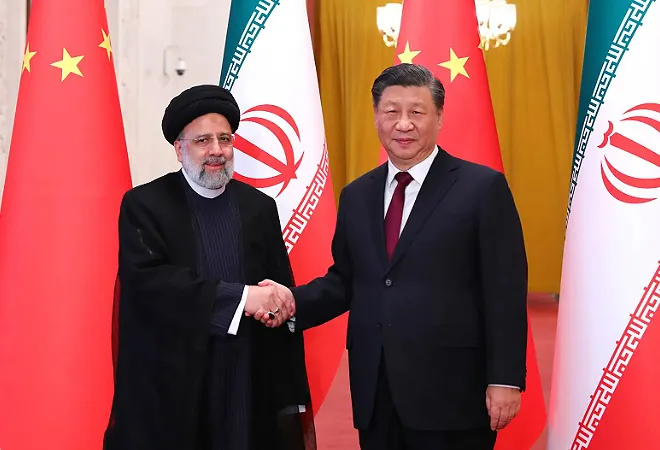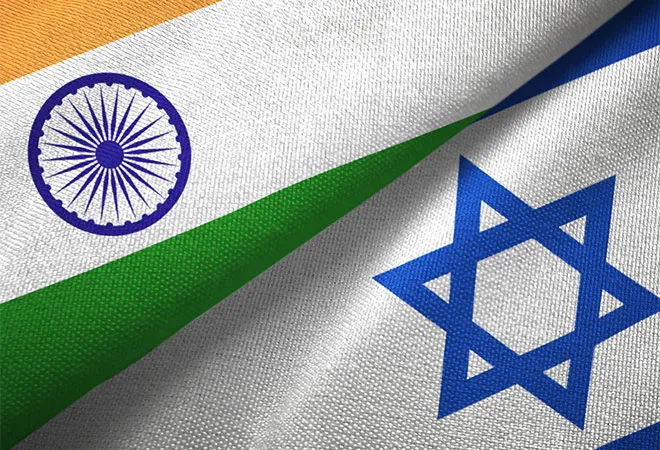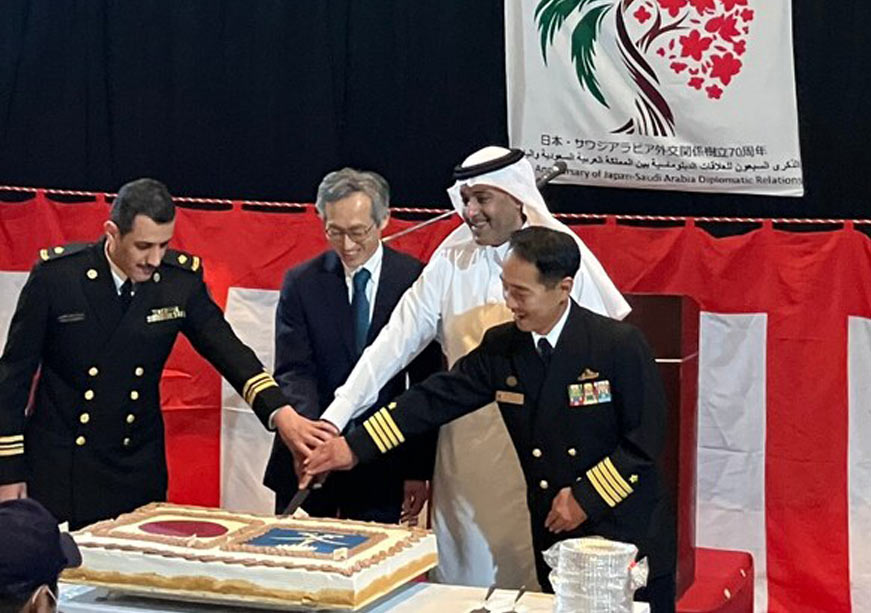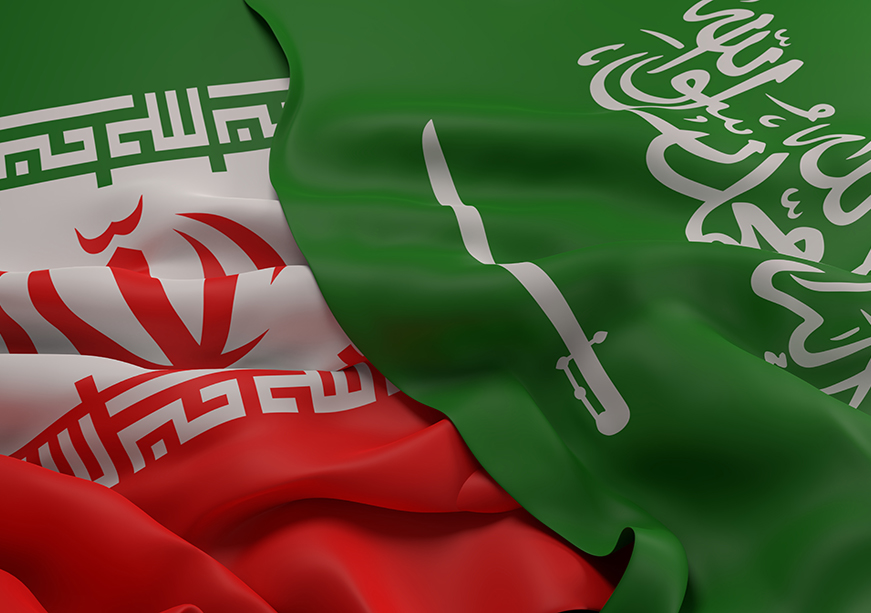Iran’s President Raisi made a high-profile tour to China and received an official welcome from his Chinese counterpart Xi Jinping on 14 February. This is the first state visit by an Iranian president to China in 20 years. As part of a three-day visit, high-ranking delegations of Tehran and Beijing signed 20 agreements to further boost mutual cooperation in different security, economic, and infrastructure sectors. Apart from the newly inked documents, it seems that the main agenda for President Raisi’s visit is to finalise mechanisms for implementing the strategic 25-year agreement, the deal that was signed in 2021 but has failed to meet Iran’s economic expectations. In the meeting with Xi, Raisi emphasised that the implementation of the strategic 25-year partnership between Iran and China is vital to improving bilateral relations and maintaining stability in the region. President Xi, on his part, underscored the need for implementing the strategic agreement between the two countries, noting that his country strongly opposes external forces interfering in Iran’s domestic affairs and the crippling measures taken by Western countries. Despite the United States’ (US) bid to hit Iran’s economy, China has remained Iran’s biggest oil buyer and top trade partner over recent years with a total trade volume of more than US$25 billion. Yet, any promising outlook in the Iran-China partnership still remains strained by multiple hurdles and uncertainties.
Despite the United States’ (US) bid to hit Iran’s economy, China has remained Iran’s biggest oil buyer and top trade partner over recent years with a total trade volume of more than US$25 billion.
Xi vows to help revive Iran’s nuclear deal
Technically speaking, although China plays a pivotal role in breaking Iran’s sanctions, without the revival of JCPOA—commonly known as the Iran nuclear deal—it is almost unlikely to implement the large economic projects of the 25-year agreement with China. By becoming more active in the JCPOA revival negotiations, China can help resolve this impasse and open a way to lift sanctions. According to the South China Morning Post, Iran’s nuclear deal is seen to be high on the agenda of Raisi-Xi talks. In this regard, Chinese President Xi Jinping told his Iranian counterpart that China will continue to participate constructively in the negotiations to revive the nuclear deal. According to Iranian experts, however, revitalising the nuclear agreement is not China’s strategic choice in siding with Iran against the West, but is more influenced by their rising concern about a nuclear Iran. China is now facing the threat of nuclearisation of Japan and South Korea and has—to some extent—the same concern over the Iranian nuclear programme. Moreover, China considers the JCPOA issue to be more of a tension between Iran and the West. China’s policy toward Iran’s nuclear deal is primarily influenced by the economic benefits that revitalising of JCPOA could deliver in implementing large trade and energy contracts with Iran. Therefore, if the JCPOA is not revived, China’s economic and energy interests could be endangered due to growing tension between Iran and its Arab rivals in the Persian Gulf. China supplies around 30 percent of its energy needs from the Persian Gulf region.
China’s policy toward Iran’s nuclear deal is primarily influenced by the economic benefits that revitalising of JCPOA could deliver in implementing large trade and energy contracts with Iran.
Seemingly the ‘no war, no peace’ formula in the Iran-US quagmire has been the preferred scenario of the Chinese, as long as Iran does not become a nuclear threshold state. Over the past years, a sanctioned Iran with limited nuclear activities has provided significant economic benefits to China. According to some unverified leaked details of the 25-year strategic cooperation agreement between Iran and China, Beijing buys Iran’s oil and gas at a 30 percent discount and has a two-year deadline to repay. Another point is that China can repay its oil debt with the Chinese Yuan. Another economic concession given to China is that two-thirds of the oil and gas purchase amount will be cash and one-third will be in the form of goods and services, or in other words, the exchange of oil for goods. If the JCPOA is revived, China will likely be deprived of these advantages.
Involving Iran in regional security arrangements
Since taking office, the Raisi administration has prioritised the policy of ‘Pivot to East’ in Iran’s foreign policy, vowing to upgrade Iran’s partnership with Asians, China, and Russia in particular as its tension with the West soared. But after China’s siding with the GCC’s against Iran during Xi’s recent visit to Riyadh, this policy lost its efficiency and credibility in Iran’s foreign policy. The “turn to the east” policy was meant to be a kind of strategic partnership of Iran with China and Russia against the US and its regional allies, but by favoring the Arab monarchies over Iran in the Persian Gulf, China has sent this message to Iranian authorities that it has not shared such a view with Iran. Unlike Tehran’s expectation, Beijing is not looking for exclusive strategic allies in the Middle East to benefit them in balancing against the US. China has long been reluctant in challenging the US supremacy in the region, but rather is determined to stand against any destabilisers to ensure energy flows. Accordingly, China has already presented a comprehensive plan to initiate a security arrangement in the Middle East and shared it with its Iranian and Arab partners. Seemingly, the Chinese government has not found the right ground to adopt this plan and has not shown any clear and public effort to implement it, at least in the official sphere. It seems that Raisi’s visit to Beijing will give this chance to the Chinese for negotiating with the Iranian official about the imperatives of their security initiatives.
China has long been reluctant in challenging the US supremacy in the region, but rather is determined to stand against any destabilisers to ensure energy flows.
For the Chinese, the tension between Iran and its regional rivals is increasing in an unprecedented way, and if this souring tension is not contained, the consequences arising from a regional clash would endanger China’s interests perilously. Therefore, de-escalation in the region is one of China’s priorities in the region, and it is quite natural that the Chinese will seize the opportunity to convince Iran’s president to take Beijing’s security plan seriously. If the Chinese could make Iran involved in its security arrangement, the ground for boosting economic cooperation between Tehran and Beijing will also be provided. Otherwise, it is very unlikely that Raisi’s visit to Beijing will lead to a significant economic achievement.
Looking ahead
For Iran, the Asian order is awaiting a new strategic birth, a process that has accelerated over the past decade but still faces many uncertainties. In addition to deepening bilateral relations with China, Iran struggles also to design a practical grand strategy to determine its partnership with the emerging new Asian order. The fact is that, unlike many of its neighbors, Iran has not yet reached a clear strategic vision in shaping its partnership with the raising Asian powers. This is highly influenced by the fact that the Islamic Republic has failed to adopt a practical ‘neighborhood policy’ and ‘pivot to east’ policy independent of long-standing anti-Westernism in its foreign policy over the last four decades. Despite the image it has created for Iranian authorities, China has not yet shared any meaningful common interest with Iranian anti-Westernism.
If the Chinese could make Iran involved in its security arrangement, the ground for boosting economic cooperation between Tehran and Beijing will also be provided.
The Iran-China partnership has gained strategic value theoretically, but in practice, they are still stuck. Given the Chinese shifting policy in the Persian Gulf and the lack of any efficient leverage to change its regional behavior, Iranian authorities tend to be cautious in defining their partnership with China. Raisi’s visit to China comes at a time when Iran’s nuclear talks remains in a deadlock, international criticism for providing drones to Russia in the Ukraine War has intensified, and domestic dissatisfaction over the economic situation has scaled up, thus leaving Iran with fewer strategic alternatives. In such circumstances, China may benefit from multiple leverages to dictate its preferences to Tehran. For Iran’s Raisi, China’s support to bypass the US-led economic sanctions and overcome the international isolation is imperative which may force his foreign policy to go along with the Chinese instructions, especially over the nuclear talks and Persian Gulf developments. Despite rising criticism at home, putting all eggs in the China basket would increasingly make Tehran more reliant on Beijing in international affairs.
______________________________________________________________________________________________________________________________
Vali Golmohammadi Ph.D. is an Assistant Professor at Tarbiat Modares University Department of International Relations, Tehran, and a Visiting Scholar at Bilkent University Ankara, Turkey.











